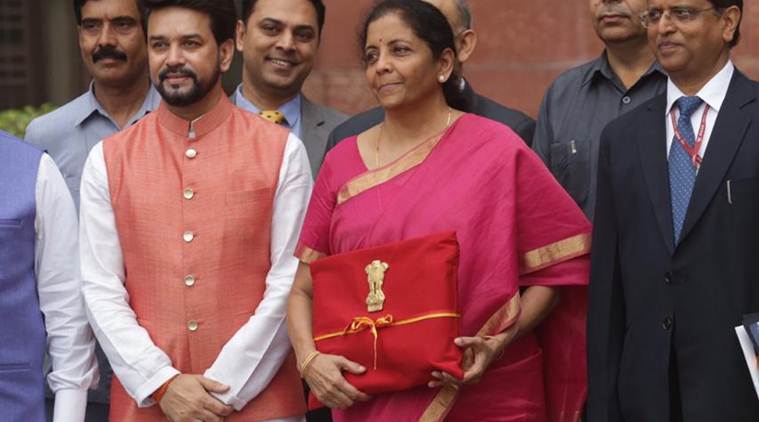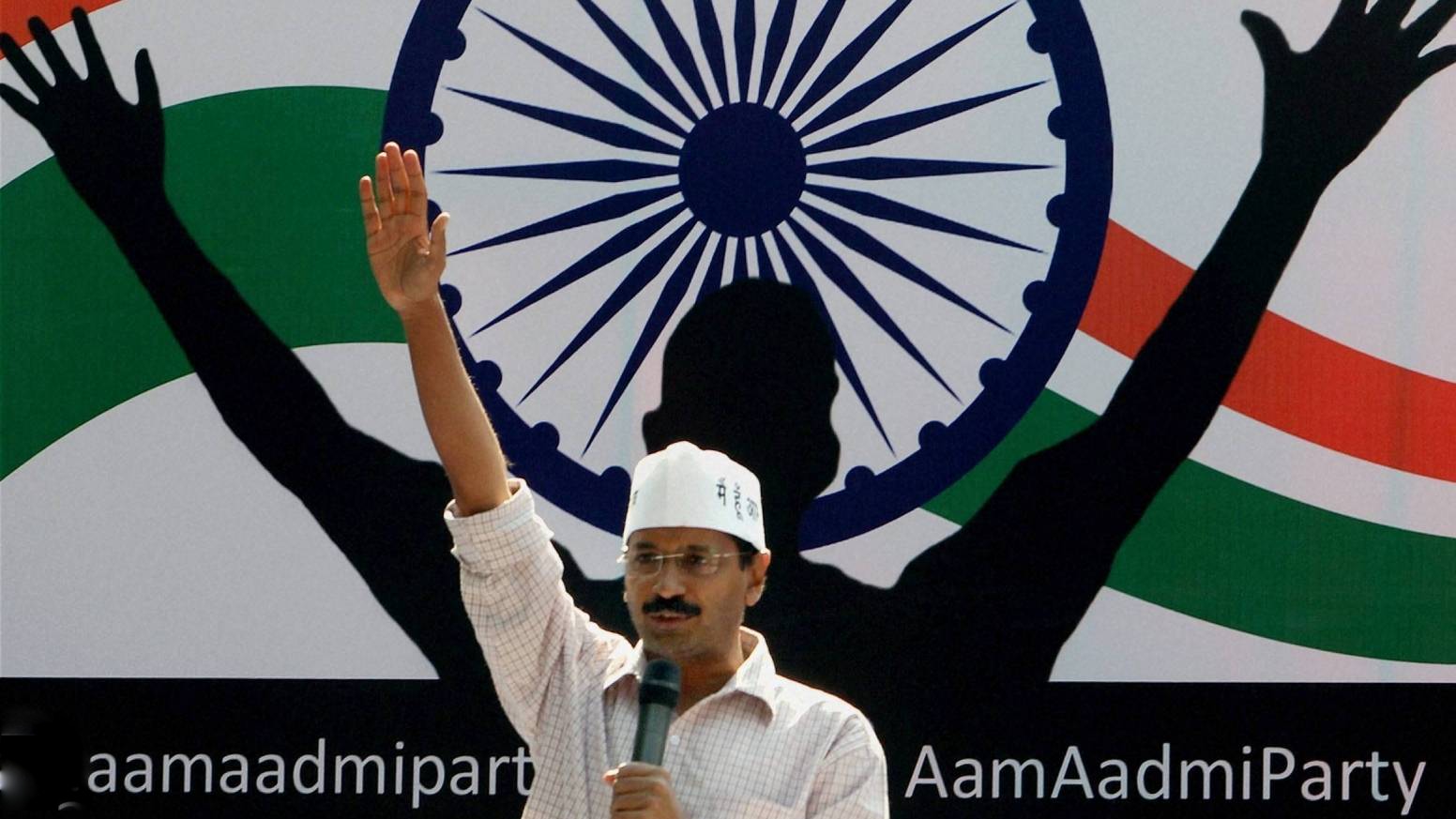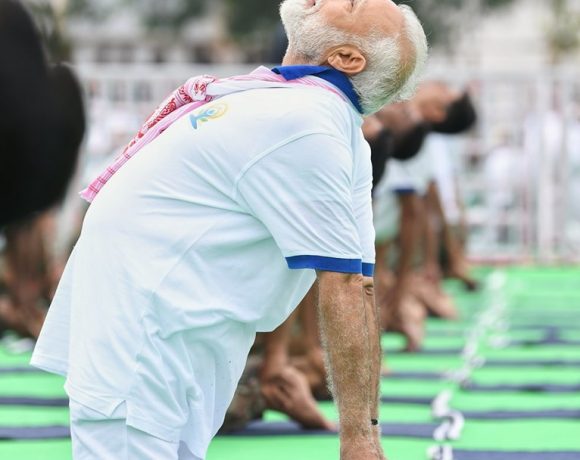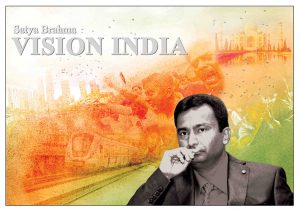

Finance Minister Nirmala Sitharaman Friday hiked tax on petrol and diesel, raised import duty on gold, levied additional surcharge on super rich and brought a tax on high value cash withdrawals as she sought to spur growth with reduction in corporate tax and sops to housing sector, startups and electric vehicles.
Watch #Budget2019 Speech in Parliament#BudgetForNewIndia
Nirmala Sitharaman यांनी वर पोस्ट केले गुरुवार, ४ जुलै, २०१९
Presenting the maiden budget of Modi 2.0 government in Lok Sabha, Sitharaman, the first full-time woman Finance Minister, proposed measures to ease liquidity crisis facing shadow banking sector (NBFCs) and providing Rs 70,000 crore capital to public sector banks while seeking to raise additional resources through privatisation of some PSUs.
In relief to tax payers, she provided for an additional deduction of Rs 1.5 lakh on interest paid on loans borrowed up to March 31, 2020 on purchase of a house up to Rs 45 lakh.
Corporate tax on companies with turnover of up to Rs 400 crore has been slashed to 25 per cent from current 30 per cent. Presently, the lower tax rate is applicable on companies having a turnover of up to Rs 250 crore.
Sitharaman said the reduced tax rate would cover 99.3 per cent of corporates in the country.
To boost use of electric vehicles, an additional income tax deduction of Rs 1.5 lakh on interest paid on loans taken to purchase EVs has been proposed.
Also the government has asked the GST Council to reduce tax rate on EVs from 12 per cent to 5 per cent. Customs duty on certain parts of EVs has been reduced.
Addressing the angel tax issue faced by startups, she said startups and investors who file requisite declarations will not be subjected to any kind of scrutiny in respect of valuation of share premium.
A mechanism of e-verification will be put in place and with this, the funds raised by startups will not require any tax scrutiny.
She raised special additional excise duty and road cess on petrol and diesel by Re 1 per litre each, saying lower crude oil prices provide her with an opportunity to review taxes on the sector.
Also, customs duty on gold and precious metals was raised from 10 per cent to 12.5 per cent to mobilise resources.
Basic customs duty was raised on an array of products including tiles, cashew kernels, vinyl flooring, auto parts, some synthetic rubber, digital and video recorder and CCTV camera.
Excise duty of Rs 5 per 1000 has been imposed on cigarettes of length exceeding 65 mm, while 0.5 per cent duty has been levied on chewing tobacco, zarda and tobacco extracts and essence.
“I propose to levy TDS of 2 per cent on cash withdrawal exceeding Rs 1 crore in a year from a bank account,” she said.
She also announced a surcharge on individuals having taxable income of Rs 2 crore to Rs 5 crore and for those above Rs 5 crore which will hike their effective tax rate by 3 per cent and 7 per cent respectively.
Sitharaman also proposed to made Aadhaar and PAN interchangeable for the purpose of filing Income Tax returns.
To boost FDI inflow into the country, the government will examine further liberalisation of sectoral investment caps in aviation, media, animation and insurance.
The Budget also proposed 100 per cent FDI in insurance intermediaries and easing of local sourcing norms for single brand retail.
She said measures are being worked out to ease filing returns and tax compliance. Taxpayers with an annual turnover of less than Rs 5 crore will have to file only quarterly returns, she said
To boost cash-less economy, she said business establishments with annual turnover of Rs 50 crore will have to use BHIM, UPI, Aadhaar Pay, NEFT, RTGS modes of payments with no charges or merchant discount rates will be imposed on customers or merchants.
RBI and banks will absorb these costs, she said.
The Securities Transaction Tax or STT is proposed to be restricted to the difference between settlement and strike price of options, she said.
She proposed an additional income tax deduction of Rs 1.5 lakh on interest paid on loans taken to buy electric vehicles.
This will lead to a benefit of Rs 2.5 lakh crore over the tax period of the loan for the payer.
She said the government will spend Rs 100 lakh crores for infrastructure in next five years.
The disinvestment target for FY20 was raised to Rs 1.05 lakh crore from Rs 90,000 crore set in the interim budget and government will continue with disinvestment of PSUs in the non-financial space as well.
Regulation of housing finance companies has been moved to the Reserve Bank of India (RBI) from the NHB.
The government proposed to allocate Rs 70,000 crore for PSU Bank recapitalisation.
Here is the extract of the Speech
The recent election which brought us to this august House today, was charged with brimming hope and desire for a bright and stable New India. Like never before, India celebrated its democracy by coming out to vote in large numbers, like never before. Voter turnout was the highest at 67.9%. Every section – young, old, first time voters, voters since the first General Election, women – all turned up to stamp their approval of a performing Government. Through their unambiguous and firm mandate they have reaffirmed “putting the nation first”. The people of India have validated the two goals for our country’s future: that of national society and economic growth.
The first term of Hon’ble PM Narendra Modi-led-NDA-Government stood out as a performing Government, a Government whose signature was in the last mile delivery. Between 2014-19, we provided a rejuvenated Centre-State dynamic, cooperative federalism, GST Council, and a strident commitment to fiscal discipline. We had set the ball rolling for a New India, planned and assisted by the NITI Aayog, a broad based think tank. We have showed by our deeds that the principle “Reform, Perform, Transform” can succeed.
Mega programmes and services which we initiated and delivered during those 5 years will now be further accelerated. We shall further simplify procedures, incentivize performance, reduce red-tape and make the best use of technology just as we did earlier. I am confident we will achieve our goals. Chankaya Niti Sutra too says: “Karya purusha karena lakshyam sampadyate.” Meaning “with determined human efforts, the task will surely be completed.
Our economy was at approximately US$ 1.85 trillion when we formed the Government in 2014. Within 5 years it has reached US$ 2.7 trillion. Hence, it is well within our capacity to reach the US$ 5 trillion in the next few years. In the interim Budget of 2019-20 presented in February 2019, we gave ourselves a Vision for the Decade. I flag here the ten points of our Vision laid before us:
- Building physical and social infrastructure;
- Digital India reaching every sector of the economy;
- Pollution free India with green Mother Earth and Blue Skies;
- Make in India with particular emphasis on MSMEs, Start-ups, defence manufacturing, automobiles, electronics, fabs and batteries, and medical devices;
- Water, water management, clean Rivers;
- Blue Economy;
- Space programmes, Gaganyan, Chandrayan and Satellite programmes;
- Self-sufficiency and export of food-grains, pulses, oilseeds, fruits and vegetables;
- Healthy society – Ayushman Bharat, well-nourished women & children. Safety of citizens;
- Team India with Jan Bhagidari. Minimum Government Maximum Governance.
- With this Vision set before us and with the mandate given by its people, we are determined to take India to that height that it richly deserves. I strongly believe that with the clear headed leadership of Hon’ble Prime Minister we can achieve our goal.
5 Trillion Dollar Economy
The Indian economy will grow to become a 3 trillion dollar economyin the current year. It is now the sixth largest in the world. Five years ago, it was at the 11th position. In Purchasing Power Parity terms, we are in fact, the 3rd largest economy already, only next to China and the USA.
To attain this and more we need to continue undertaking many structural reforms. In the last five years, we saw many big reforms in particular, in indirect taxation, bankruptcy and real estate. While these reforms were happening here in the Parliament, the common man’s life was being changed through MUDRA loans to help him do his business, and through several programmes it was being ensured that his/her kitchen had become smokeless, his/her house got electricity connection and women’s dignity was respected with the provision of toilets in homes. The common man was served even as major transformational reforms were being rolled out. And for this to continue we need to invest heavily in infrastructure, in digital economy and on job creation in small and medium firms.
Respected Speaker Sir, it took over 55 years for the Indian economy to reach 1 trillion dollar but when the country and her people’s hearts are filled with aasha, vishwas and aakansha that is, when hearts are filled with hope, trust and aspirations, we, in 5 years, added 1 trillion dollar. Today we are nearing a 3 trillion dollar level. So when we aspire to reach a 5 trillion dollar level, many wonder if it is possible. If we can appreciate our citizens’ “purusharth” or their “goals of human pursuit” filled with their inherent desire to progress led by the dedicated leadership present in this House, the target is eminently achievable.
All of India’s private sector industries – small, medium or large – have played a substantial role in growing our economy. I recall the words of an eminent industry leader, who said that his company’s growth has always aligned itself with India’s growth, before and post-independence. So if before-independence, India Inc. understood ‘Swadeshi’, today they understand ‘Make in India’. We do not look down upon legitimate profit-earning. Gone are the days of policy paralysis and license-quota-control regimes. India Inc. are India’s job-creators. They are the nation’s wealth-creators. Together, with mutual trust, we can gain, catalyze fast and attain sustained national growth. I wish to propose a number of initiatives as part of a framework for kick-starting the virtuous cycle of domestic and foreign investments.


















